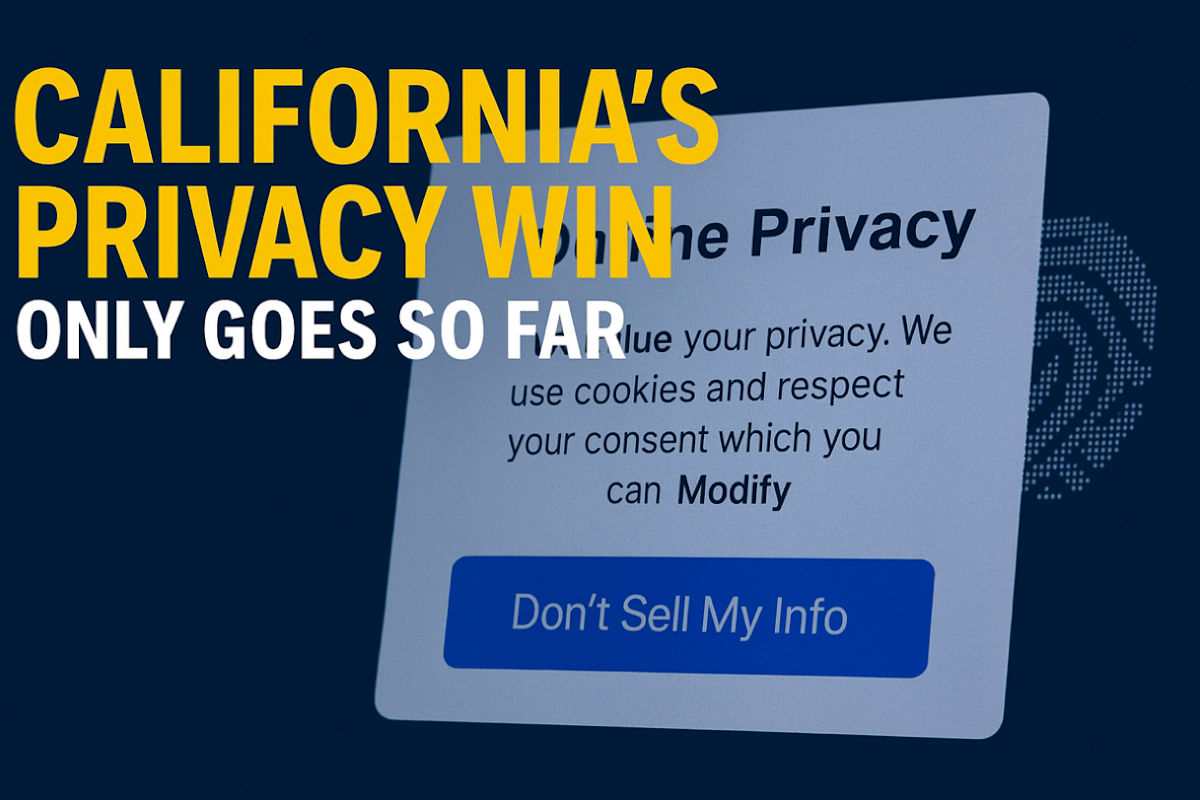Kim K. in Calabasas, CA, asked if California’s new browser privacy law means she no longer needs Incogni, a sponsor of my national radio show. Great question. First, yes, I did check to see if that “K” stood for Kardashian. No response … yet. 😏
👨🏻⚖️ California’s new AB 566 law
It forces browsers to give you a new one-click “Do Not Track Me” signal. It’s basically a big red stop sign for websites that love scooping up your personal data. The law (AB 566) goes into effect in 2026, and sites will be legally required if you’re in California.
So what does it actually stop?
All those creepy behind-the-scenes trackers, from recording your clicks and time on a page to building a profile around what you shop for, what device you’re on and your location. And yep, it could also mean the end of those annoying cookie consent pop-ups.
Sounds like a win, right? It is, but only if you live in California.
Other states haven’t passed anything like it yet. There’s no national law forcing websites to honor this do-not-track signal outside of CA, either. Some sites might apply it broadly to avoid legal headaches, but I wouldn’t count on it.
So while this new browser feature is a great first move, it’s not a force field. You’re still fair game for data brokers, app trackers and companies selling your personal data.
🕵️ The bigger problem
Now, this law only applies to websites. It does nothing to stop the worst offenders, data brokers.
This shady industry is already worth $278 billion and is projected to soar past $500 billion by 2030. That’s huge.
They’re scraping your name, address, phone number, salary estimate, political leanings, medical issues, interests and even your family members’ names, all from apps, public records, loyalty programs, credit pulls and social media. Then they bundle it up and sell it.
😳 Can you opt out of this mess?
Technically, yes. But good luck.
Most of the 400+ data broker and people-search sites hide their opt-out forms deep in submenus on pages that aren’t indexed by Google.
Some require photo ID, a snail mail letter or a CAPTCHA gauntlet that would make a robot cry. It’s like playing whack-a-mole with your identity.
That’s why I use Incogni. They’ve already filed over 245 million removal requests and don’t stop until your info is gone and stays gone. I don’t have hours to hunt for obscure opt-out links and chase down shady companies that don’t want to be found. Incogni does it for me, and I love that.
✅ You’ve heard me talk about Incogni. Now’s the time to use this link and promo code KIM60 to get an instant 60% savings. Btw, once your personal info is gone from these databases, you’ll notice the spammy calls and texts vanish like the wind.
So yes, Kim, flip that browser switch. But remember, some things made of silicon offer more support than others. California’s AB 566 law ain’t one of them.
Tags: family, Google, privacy, robot, social media

